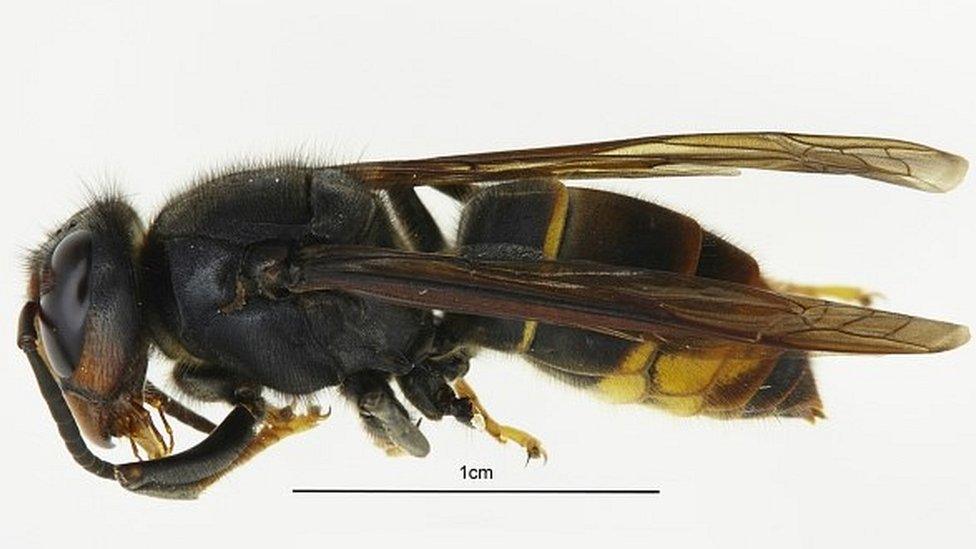Beekeepers urge reports of Asian hornet sightings
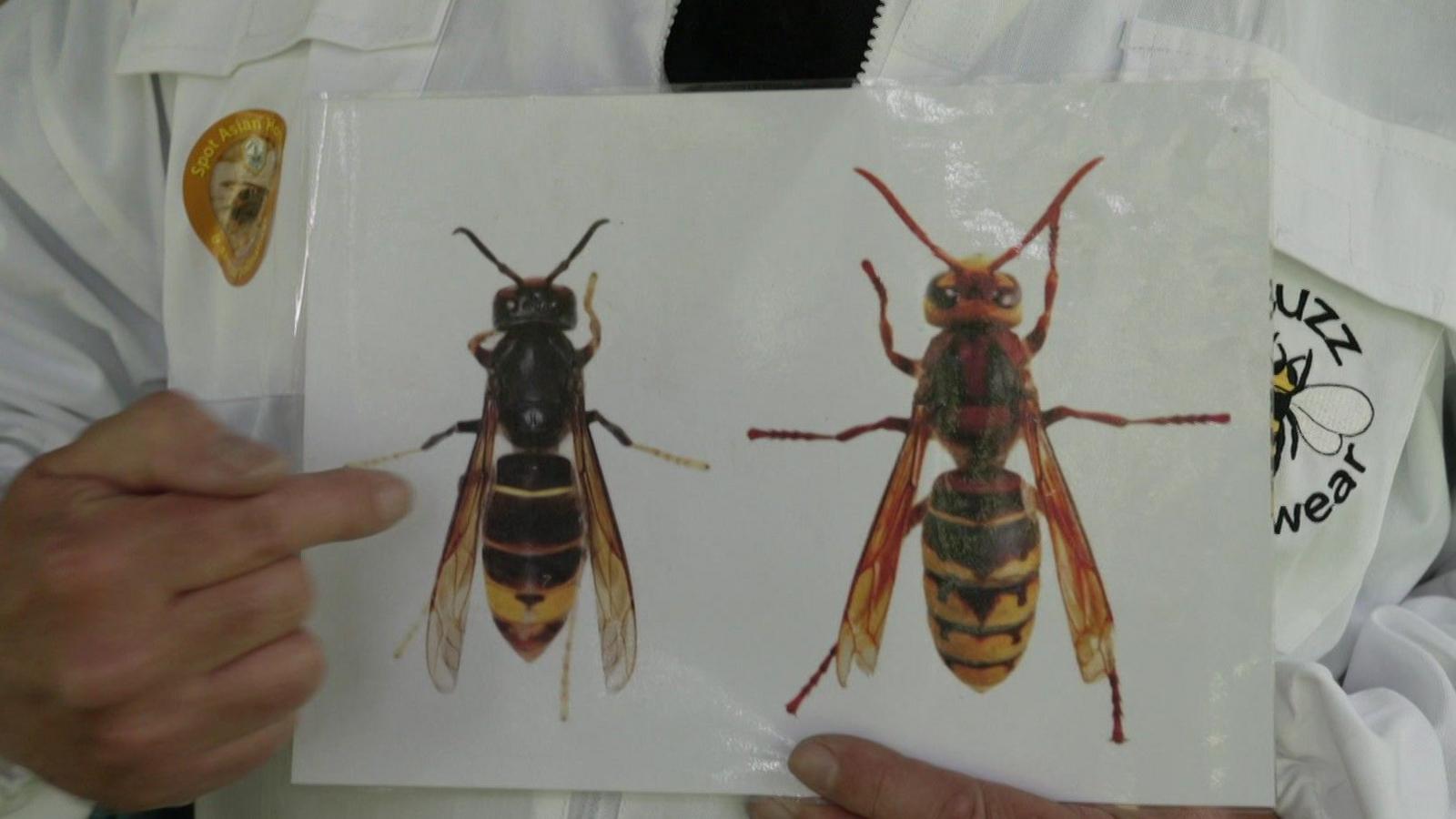
Beekeepers are highlighting the difference between Asian hornets, shown on the left, and European hornets
- Published
Beekeepers are urging the public to be on the look out for Asian hornets in the south-west of England as the summer nesting season approaches.
The invasive species is a predator of other insects such as honey bees, butterflies and hoverflies.
Asian hornets have already established colonies in Europe and on the Channel Islands, and there have been several confirmed UK reports of the insects, mainly in south-east England.
Gerry Stuart, from the Devon Asian Hornet Action Team, said a nest could be "about the size of a beachball" and the hornets " will consume about 11kg [24lbs] of pollinators in a single season".
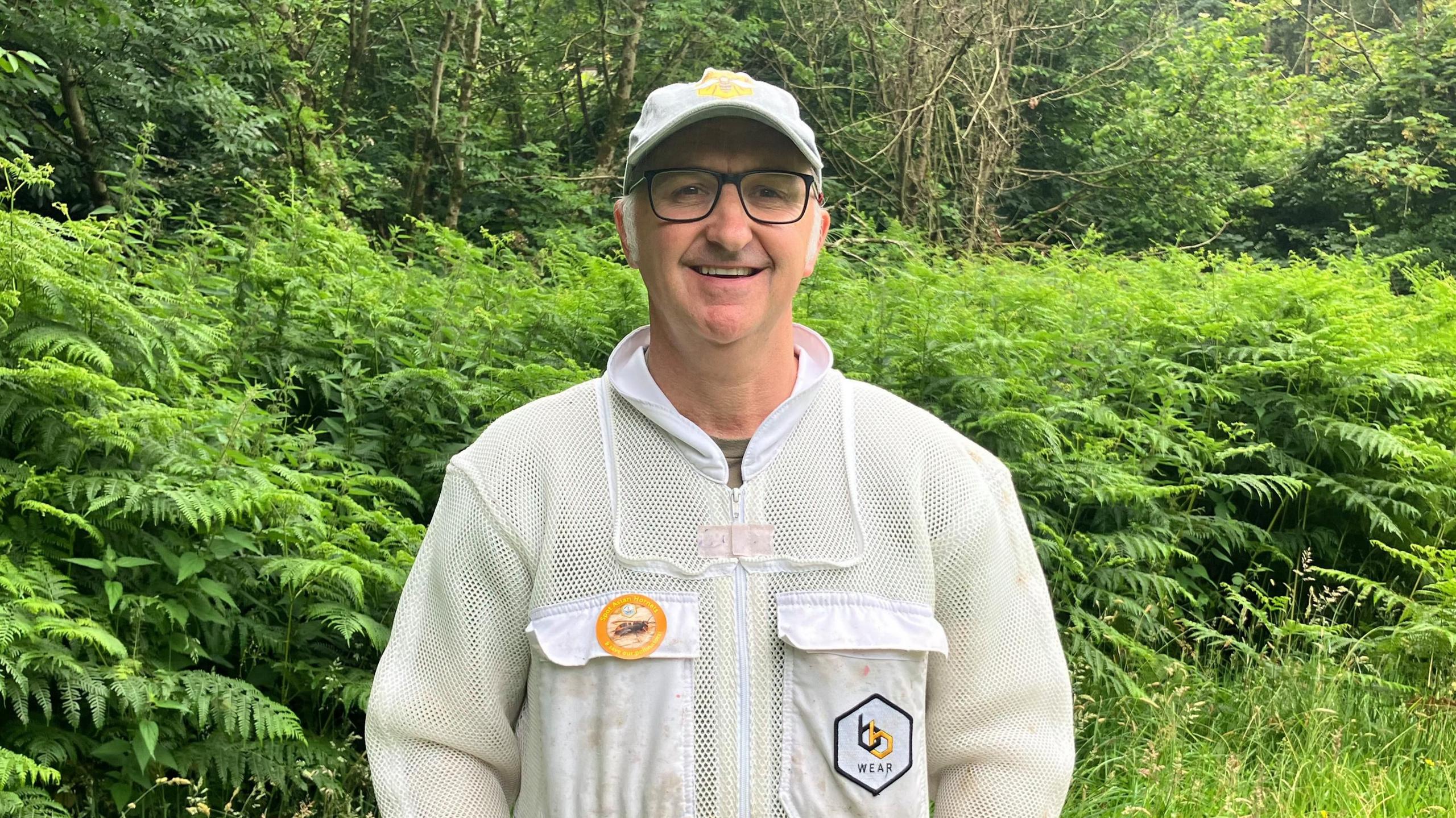
Mick Brian discovered an Asian hornet in his back garden in Plymouth
Asian hornets have been spotted in Devon.
Mick Brian discovered one in his back garden in Plymouth a couple of years ago.
The beekeeper, said he saw an insect swoop down and devour a honey bee.
He then called in the National Bee Unit, which by a method of marking and triangulation, managed to locate the nest in Weston Mill Cemetery in the city.
'We could see honey bees, bumble bees and butterflies disappearing'
Beekeepers in Devon and Cornwall are urged to be careful
It is thought the insects might have been blown across the English Channel in the prevailing winds, or stowed away on a lorry or a ferry.
Mr Brian said: "If you look at France, it's thought there's now an Asian hornet nest in every square kilometre of the country, which is why it's important to sight these [in the UK] and let the National Bee Unit do something about them."
Gerry Stuart, who is in charge of the Devon Asian Hornet Action Team, said any potential sightings could be reported via an app Asian Hornet Watch app on smart phones.
He also said it was important for the public to know the difference between an Asian hornet and the European hornet.
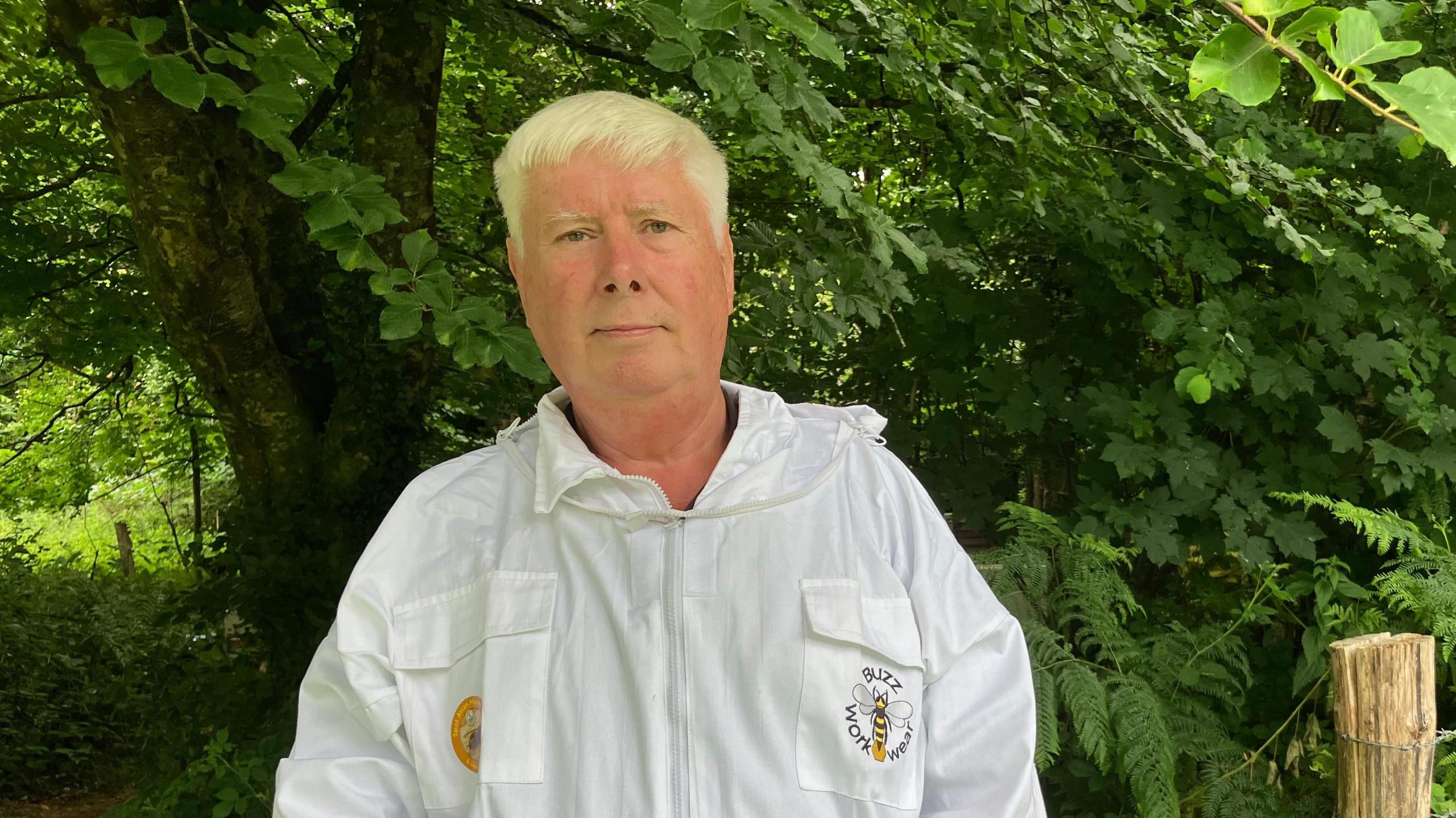
Gerry Stuart wants people to report sightings via the Asian Hornet Watch app
Hornets are about twice the size of an average wasp.
He said the European variety had "a mainly terracotta body, with lots of yellow bands on its abdomen".
The Asian hornet was "mainly black on its body, with just one yellow band on its abdomen, and has an orange coloured face", he said.
Follow BBC Devon on X, external, Facebook, external and Instagram, external. Send your story ideas to spotlight@bbc.co.uk, external.
Related topics
- Published3 April 2024
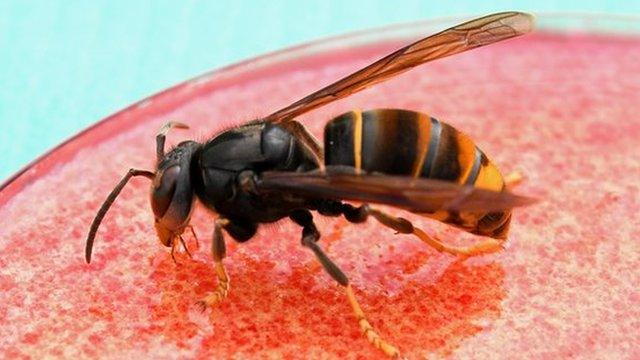
- Published4 March
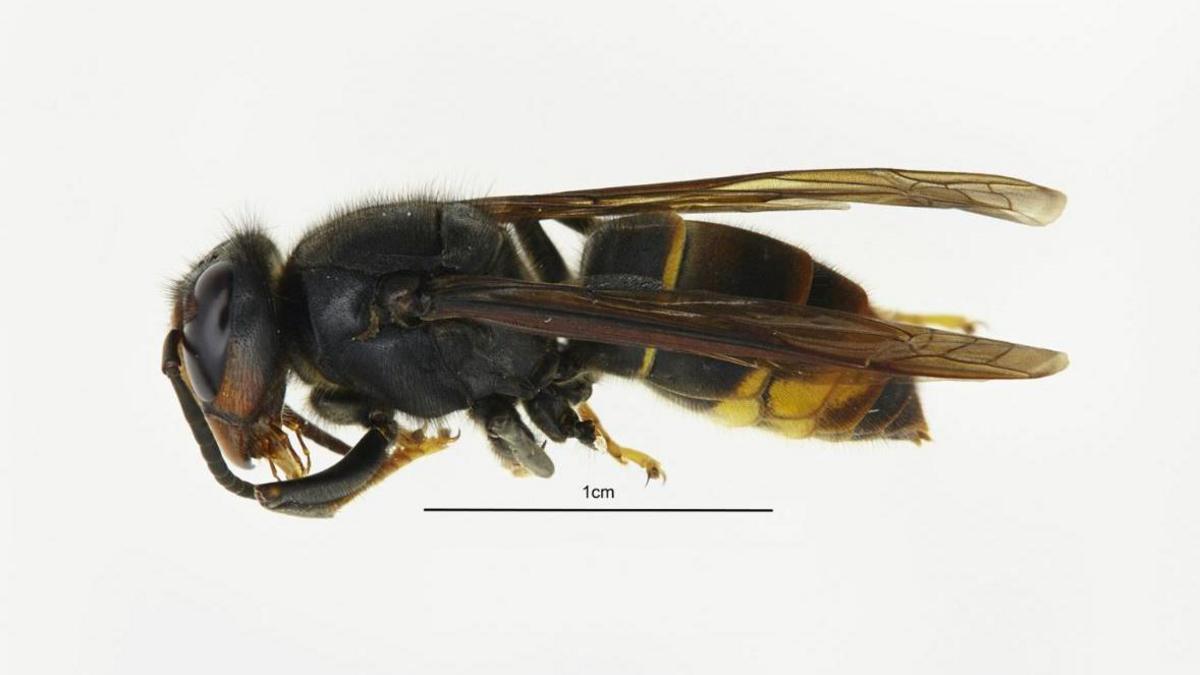
- Published28 July 2023
